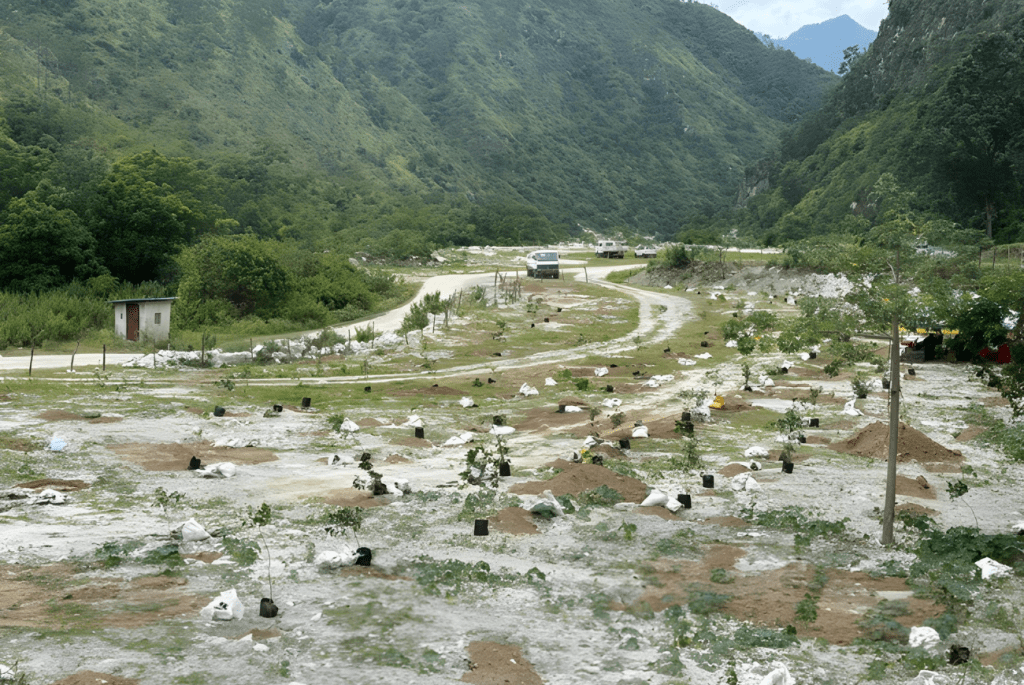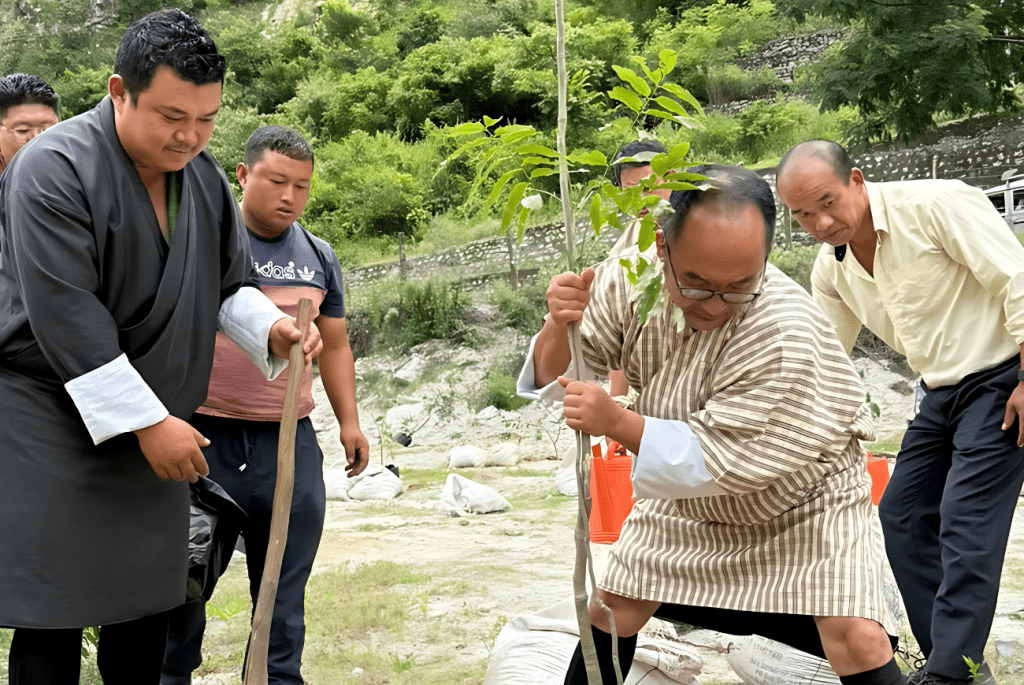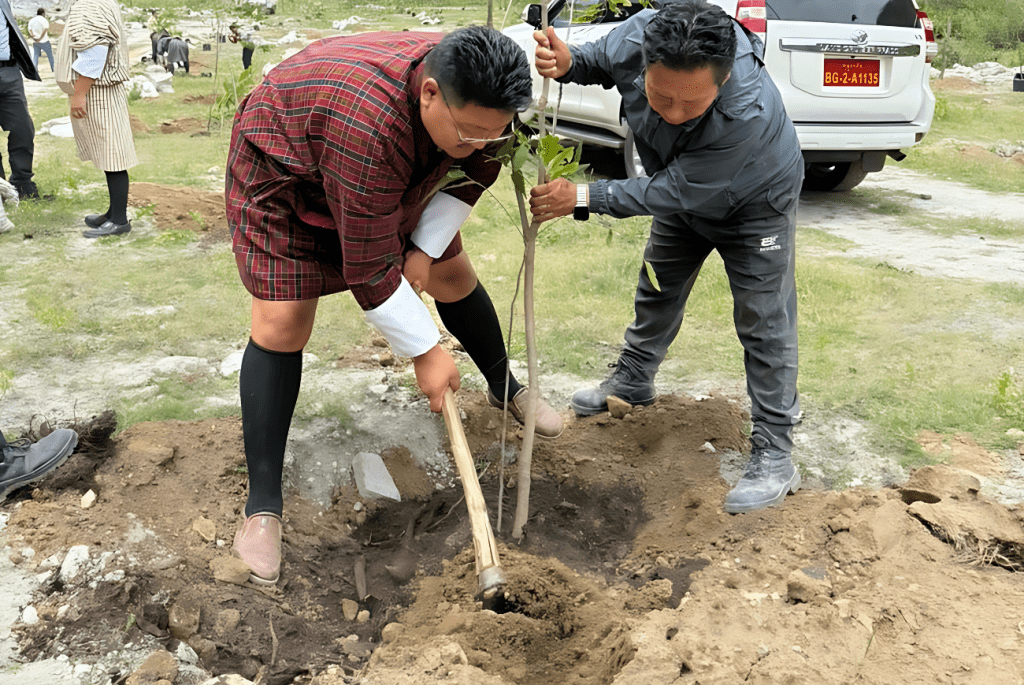The Management and Executive officials of PHPA-II, along with representatives from RSPN Bhutan recently inaugurated a eco-restoration site, supporting the rehabilitation of the Bjitshokha muck disposal site that was used during hydropower construction times.
This joint collaboration marks an important step towards rewilding and restoration the degraded habitats for the 𝗖𝗿𝗶𝘁𝗶𝗰𝗮𝗹𝗹𝘆 𝗘𝗻𝗱𝗮𝗻𝗴𝗲𝗿𝗲𝗱 𝗪𝗵𝗶𝘁𝗲-𝗯𝗲𝗹𝗹𝗶𝗲𝗱 𝗛𝗲𝗿𝗼𝗻 (𝗪𝗕𝗛) 𝗮𝗻𝗱 𝗼𝘁𝗵𝗲𝗿 𝗮𝘀𝘀𝗼𝗰𝗶𝗮𝘁𝗲𝗱 𝘀𝗽𝗲𝗰𝗶𝗲𝘀 that are found along riverine ecosystem within the PHPA-II project areas. The Punatshangchhu basin, is a key habitat for the WBH, annually recording the sightings of at least 70% of WBH population in Bhutan.
Under the ongoing BMUV-IKI project, more than 50 Ha of degraded land areas within two of the river basins, Mangdechhu and Punatshangchhu have been restored. This effort is expected to improve habitat quality, promote biodiversity conservation and benefit communities. More importantly to mitigate the climate change.
The collaboration with hydropower authorities further strengthens our shared commitment to environmental stewardship and sustainable development.
RSPN Bhutan remains grateful to PHPA-II for this valuable collaboration and their continued support.
This activity is part of the IKI Project, “Developing Ecosystem-based Solutions for Managing Biodiversity Landscapes in Bhutan,” funded by the BMUV and co-funded by the MAVA Foundation and RSPN.



Copyright © 2026 RSPN All Rights Reserved